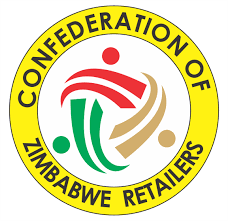Retailers bemoan weakening demand
THE Confederation of Zimbabwe Retailers (CZR) says the growing informality in the country’s economy is eroding demand for goods and services from registered formal traders, which is a threat to business sustainability.
CZR president, Mr Denford Mutashu, said their members have expressed concern that the decline in formal retail and wholesale business sales was reducing their revenue.
Confederation of Zimbabwe Retailers president Mr Denford Mutashu
“The retail and wholesale business has seen effective demand plummeting by an average of 33 percent with some struggling to meet salary obligations,” he said in an interview.
“Declining revenue is met with escalating costs amid obtaining near stability. The formal business continues to shrink reducing its capacity to contribute to fiscus. The shadow economy remains a big threat as activities are not regulated.”
SMEs have become dominant economic players in Zimbabwe, while a majority of them still operate informally.
While the Government has set in motion processes towards formalising the informal sector and harnessing tax revenue from the sector, experts say implementation is still faced with several bottlenecks including technology capacity limitations.
Contacted for comment, business analyst Mr Morris Mpala said the wholesale and retail business sector was under siege from the informal sector as most goods are increasingly being diverted downtown where they are being sold cheaper for cash.
“To counter this development, we need to encourage formalisation, reduce the cost of doing business and increase ease of doing business to the wholesale and retail sector,” said Mr Mpala.
Business analyst Mr Morris Mpala
“We also need to improve statistics gathering methods into the informal sector so that we use it for policy formulations and analysis of the economy that includes informal business dealings.”
Engagement with Small and Medium Enterprises (SMEs) representatives has also seen the sector partnering with Government in holding public campaigns to encourage informal traders to formalise their operations.
The formalisation drive speaks to the broader ideals of building a prosperous and empowered upper-middle-income society by 2030, with small businesses contributing to the growth of the economy through paying taxes and increased market linkages and exports.–-chronicle.cl.zw











